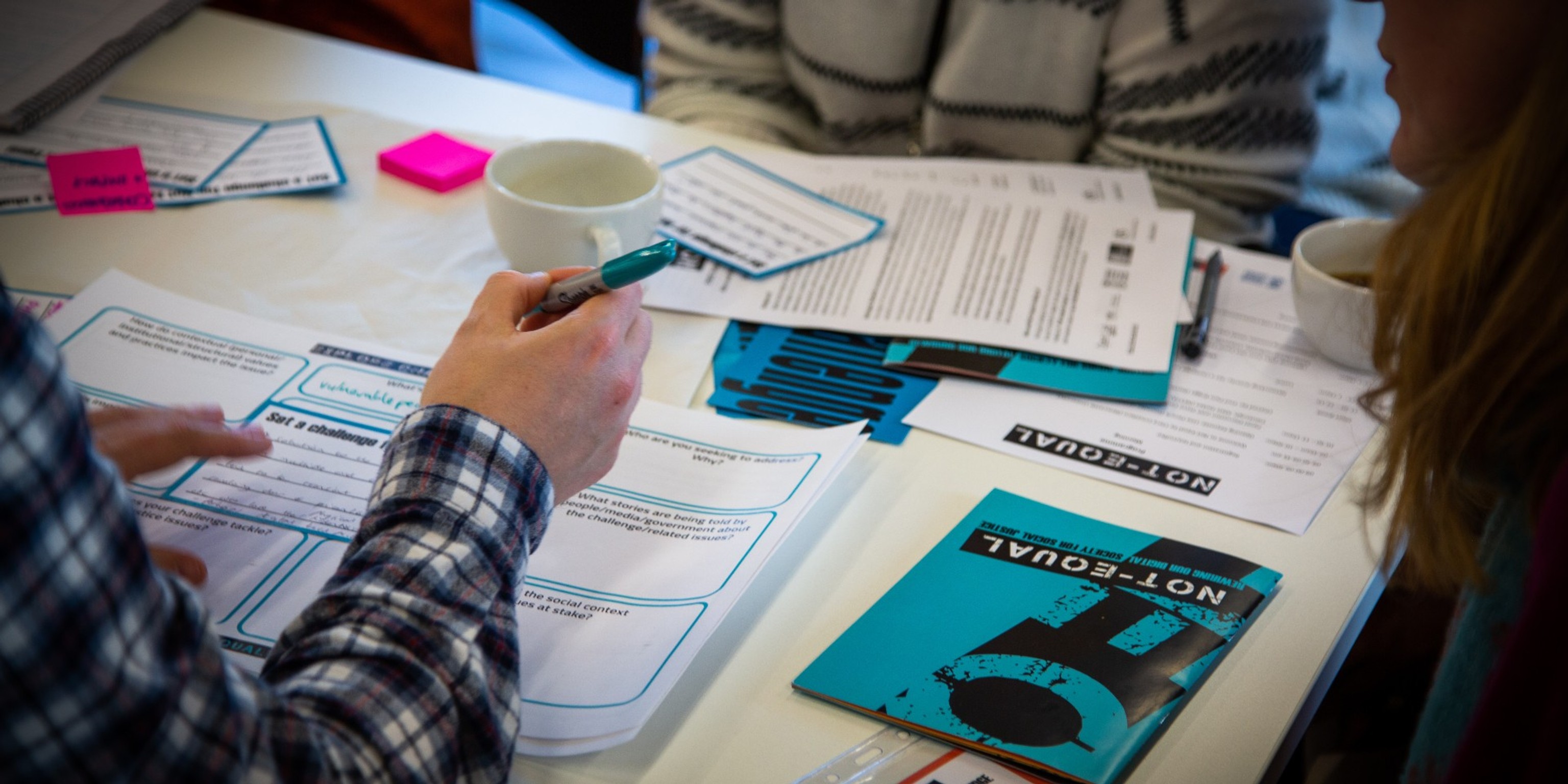
Creating a community panel to review HCI research proposals
Design Futures


Collaborators Not-Equal Network+
Abstract
We invited distinct groups of citizens to co-develop and apply social impact assessment criteria for the purpose of reviewing research proposals on HCI, social justice and digital technologies.
Method
The process was designed to create dialogic spaces that foster critical engagements with technologies and social issues, cooperation and peer-support.
Takeaways
The work contributes to HCI and civic engagement’s traditions to develop effective participatory methods and collaborative processes to produce digital technologies that support social justice.
In this paper we report insights from the design and delivery of a process that invited distinct groups of citizens to co-develop and apply social impact assessment criteria for the purpose of reviewing research proposals on HCI, social justice and digital technologies.
We describe our process, designed to create dialogic spaces that foster critical engagements with technologies and social issues, cooperation and peer-support. In our findings we explore how people defined and contextualised social impact in lived experiences, negotiated and
Our study unfolded in the context of a network project based in the UK—Not-Equal, which aims to foster collaborative explorations of the ways new and emerging digital technologies can be designed to foster social justice, through a programme of activities.
The study reported in this paper, focuses on one of such activities—the ‘Open commissioning’ programme where teams of cross-disciplinary academics and non-academic partners were invited to co-develop and submit research proposals.
We reflect on the significance of involving citizens in the commissioning of research that addresses inequalities and social justice in technology design and draw implications for HCI researchers concerned with ethical dimensions of technology. The work contributes to HCI and civic engagement’s traditions to develop effective participatory methods and collaborative processes to produce digital technologies that support social justice.
A call for honesty and care
While designing and delivering our Community Panel process, we discovered that our panelists found value in honest and humble (unassuming) accounts that would openly consider the ambivalent nature that any imagined future digital innovations or novel socio-technical interventions necessarily entail.
Such a recognition calls for reflexive accounts that are mindful of the limits of our own knowledges as we endeavor to co-design responses to the complex issues that are experienced by communities, which we may not have direct experiences of.
Our panelists were confused and frustrated by the lack of care shown in rendering ideas in language they could understand and relate to. In a sense, this lack of care resulted in panel members feeling marginalised and disenfranchised from the research and research cultures.
The value and challenges of setting up a Community Panel
Our study and related insights add to the growing discourse about ethics in digital innovation and aligns with calls for design as a catalyst for social change.
We have highlighted that when voices from across society are brought together, old and new ideas, hopes and reflections about the present and the future emerge, and people can apply those to the practice of envisioning (un)intended consequences of technologies but also how things ‘ought to be’ and the kind of worlds that digital innovation and HCI research should play a role in helping co-create.
The value of the our Community Panel process, then was as much about an attempt to open up and ‘democratise’, as much as a process about collective sense-making—sharing and changing people’s perspectives, defining values and mobilizing.